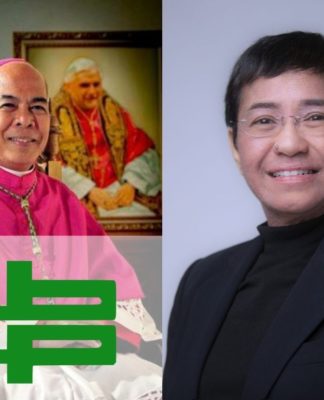Since it started six years ago, Inkblots, the UST National Campus Journalism Fellowship, has consistently left its participants wanting for more.
By inviting prominent lecturers in different fields of journalism, the Varsitarian, organizer of Inkblots, has been attracting campus journalists from different universities and colleges from as far as Mindanao in the south and Batanes in the north by hundreds.
This year, the Varsitarian strove to control the number of delegates for a more effective congress. Nevertheless, it was a reunion of sorts for some who had made it before.
Some lecturers also did “repeat performances”: Nestor Cuartero, Tempo’s Entertainment editor (feature writing); Joaquin “Quinito” Henson (sports writing); Sheila Coronel of the Ramon Magsaysay award winning Philippine Center for Investigative Journalism (investigative journalism); Pulitzer nominee Romeo Gacad (photojournalism); Christian Esguerra, Philippine Daily Inquirer (PDI) Metro news writer (campus newspaper management); and Ruel de Vera, associate editor of Inquirer Sunday Magazine (culture and lifestyle writing).
Cuartero emphasized that although feature writing is “not meant to deliver the news, they cover timely subjects and do contain elements of news, but their main function is to humanize.”
Henson emphasized the importance of injecting human interest to spice up the coverage of sports. He also reminded that a writer must “do his homework and review statistics.”
Stressing the import-nce of investigative journalism, Coronel declared it was “in the power of the media to catalyze reforms,” but she warned the students “to be careful and fair.”
The new lecturers were Nathaniel Barreto of Tempo (newswriting); Probe Production’s Che-che Lazaro (broadcast journalism); Palanca award winner Vim Nadera ( writing in Filipino); Rene Aranda, Philippine Star cartoonist (cartooning); Marites Vitug, publisher and editor in chief of Newsbreak (journalism ethics); and Maximo Soliven, publisher of Philippine Star, (column writing).
Nadera pointed out that today’s generation would rather listen to the tune of “Ocho-ocho” by Bayani Agbayani than patronize Filipino literature when in fact the former has no message to impart. “Binigyan lang ng upbeat na tunog nagustuhan na,” said Nadera. He, however, expressed hope because the “text generation has responded very-well to our effort of propagating Tanaga—a traditional Tagalog poem—through TextTanaga.”
Barreto said that in news writing, “the key is revising.” He pointed out that the writer is the first editor.
A panel discussion on “Sex and Violence: Ratings and Sales versus Journalism Ethics” was conducted by Rina Jimenez-David, PDI columnist; Eulogio Magsaysay, Jr. of the Alliance of Volunteer Educators; Dodie Lacuna of RPN-9; and Florentino Hornedo, United Nations Economic, Scientific and Cultural Organization commissioner, who was also the keynote speaker.
According to the panelists, since the public cannot be expected to refrain from patronizing sex and violence in the media, it is up to the media to control itself. They said there should be a watchdog to keep an eye on the watchdog.
Hornedo, in his keynote speech, reminded the audience how during his time, journalists have limited sources of information and would even rely on the typewriter for their articles. He said that with the advent of technology, campus writers have the responsibility to produce better articles.
The Inkblots was highlighted by the awarding of the 4th National Campus Investigative Journalism Award sponsored by Julio Macaranas, Jr., a retired Washington-based legal editor and former editor in chief of the Varsitarian. The award was established in honor of his late mother, Mercedes S. Macaranas, who encouraged him to write.
For the fourth straight time, no winner was declared. But a special citation was shared by University of St. La Salle’s Spectrum for its report on student activity funds, and the UST Journalism Society’s Journalese for its report on the health hazards of clove cigarettes. Although no winner was declared, the Spectrum and the Journalese shared the cash jackpot of P30, 000.
While freedom of expression could be exercised in many ways, the campus publication is one medium where students could actually express their ideas. Recognizing this, the Varsitarian tries to promote campus press by providing workshops to budding campus journalists to help them become efficient writers. Through Inkblots, it seeks to reach, as far as possible, young and creative minds and train them to become responsible campus journalists.
To this end, the Varsitarian will organize Inkblots, year in and out. Angelo C. de Alban

















